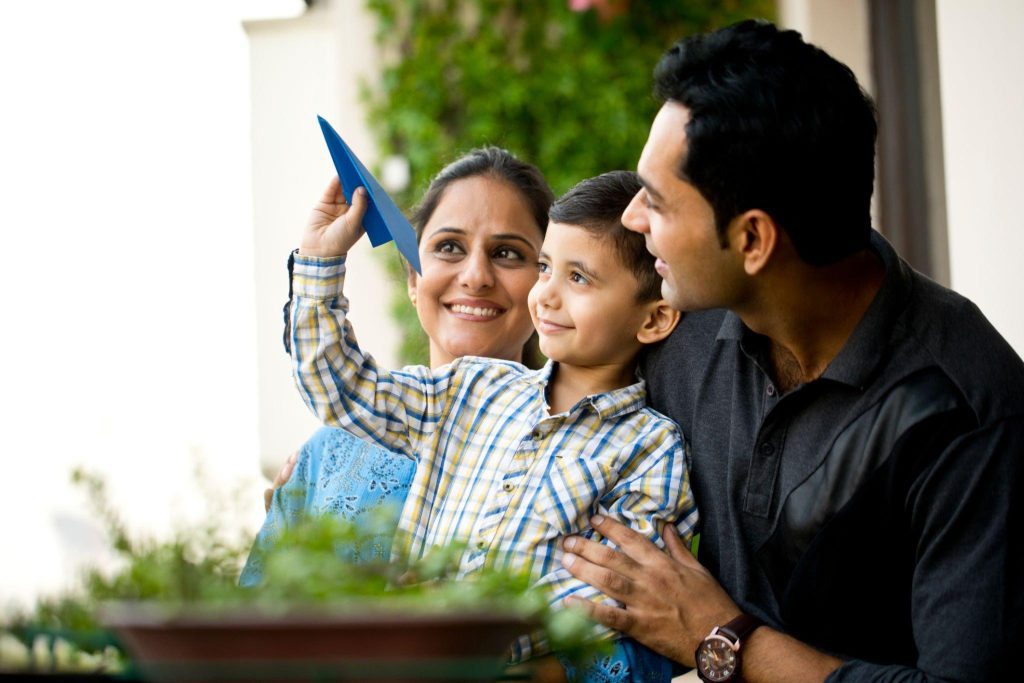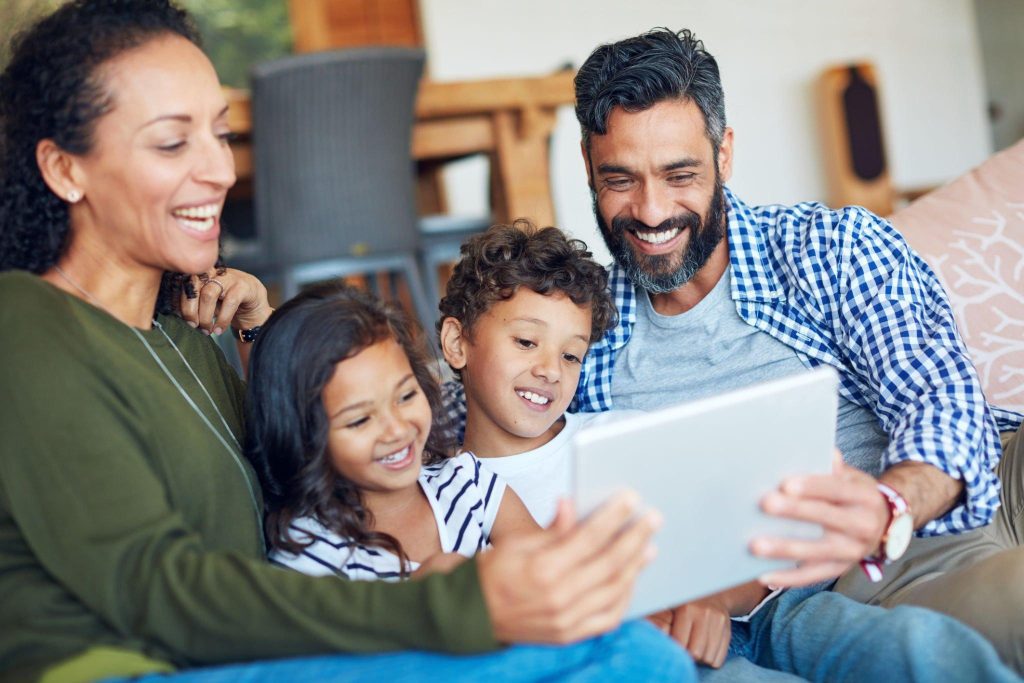Life Style
Triple P Parenting: 3 Proven Method for Positive Discipline
Triple P, also known as the Positive Parenting Program, is an evidence-based parenting program designed to prevent and treat behavioral and emotional problems in children and teenagers. It aims to equip parents with effective strategies and skills to build strong, healthy relationships in families.
What is Triple P Parenting
Triple P takes a tiered approach to parenting intervention, with five different levels of support available depending on each family’s needs. It recognizes that parents have different concerns, and provides customized solutions to help them create stable, nurturing environments for their children.

The program does not promote a “one size fits all” view of parenting. Instead, it offers practical, flexible techniques that can be adapted to a wide range of parenting situations. Parents can choose the level of intervention appropriate for their family after a consultation with a trained Triple P practitioner.
Some distinguishing features of the Triple P system include:
- It uses socially valid and versatile parenting strategies supported by research.
- The multi-level structure allows for customization for different family situations.
- It incorporates active skills training for parents.
- There are self-help options as well as personal consultations available.
- It aims to increase parents’ sense of confidence and self-efficacy.
- Local providers can be accessed in many communities worldwide.
- The goals of Triple P are to prevent behavioral, emotional and developmental problems in children by enhancing their parents’ knowledge, skills and confidence.
Levels of Triple P
Triple P has 5 levels of intervention that increase in the intensity and breadth of parenting support. The levels allow parents to choose the support that best suits their needs.
Level 1 – Universal Triple P
Level 1 Universal Triple P provides all parents access to general information about promoting their child’s development and managing common behavioral issues. It aims to destigmatize seeking help with parenting. Resources are made available to everyone in the community, like brochures, tip sheets, seminars, and brief consultations.
Level 2 – Selected Triple P
Level 2 Selected Triple P offers specific advice to parents with a particular concern about their child’s behavior or development. It involves 2-3 brief targeted consultations with a practitioner, often by phone or online. Parents learn practical strategies tailored to their situation.
Level 3 – Primary Care Triple P
Level 3 Primary Care Triple P is for parents who need more intensive training in positive parenting skills. It involves 4-5 consultations with a practitioner, roleplaying exercises, homework tasks, and support resources. Parents develop a tailored parenting plan to implement at home.
Level 4 – Standard Triple P
Level 4 Standard Triple P is an 8-10 session parenting program for parents who need further help with behavior management or skill development. A practitioner delivers training through individual or group sessions. Parents gain broader knowledge and competency in applying positive parenting principles.
Level 5 – Enhanced Triple P
Level 5 Enhanced Triple P is the most intensive intervention for families with complex or severe behavioral challenges. It includes individualized family sessions, consultations with other involved providers like teachers, and extra support coordinating the home-school parenting approach.


Triple P Principles
Triple P is based on 5 core principles that guide the parenting approach:
- Ensuring a safe, engaging environment. This principle emphasizes childproofing and removing hazards to create a safe home environment. It also discusses making time for engaging, high-energy activities with your child each day.
- Creating a positive learning environment. Here the focus is on using assertive discipline, reasonable expectations, and clear, calm instructions. The goal is to encourage positive behaviors.
- Using assertive discipline. This principle covers setting rules, directing behavior positively, and using logical consequences for misbehavior. The aim is to set limits while avoiding harsh punishment.
- Having realistic expectations. Understanding normal child development and avoiding unrealistic expectations are discussed here. The goal is to adjust your expectations based on your child’s evolving skills.
- Taking care of yourself as a parent. This principle stresses self-care, supportive relationships, and maintaining emotional regulation. The philosophy is that taking care of yourself helps you be calmer and more consistent.
Who Developed Triple P?
Triple P was developed in the late 1970s by Dr. Matthew Sanders and colleagues at the University of Queensland in Australia. Dr. Sanders is a professor of clinical psychology and the founder of the Triple P – Positive Parenting Program.
While working as a clinical psychologist, Dr. Sanders became concerned with the large number of parents seeking help for behavioral and emotional issues with their children. He believed that giving parents effective and accessible parenting skills could prevent problems from developing. This led him to develop the Triple P system.
Dr. Sanders collaborated with a multidisciplinary team of psychologists, social workers and health professionals to create the program. The aim was to synthesize research on topics like behavioral family intervention, social learning models, and developmental research to create an evidence-based parenting program.
Triple P draws on cognitive, developmental and behavioral theory as well as research into risk factors for child maltreatment and behavioral problems. The program aims to equip parents with research-backed strategies to promote their child’s development and prevent problems before they arise.
Dr. Sanders and his colleagues systematically developed and evaluated the different levels of Triple P over several decades. The program has been subject to extensive research and is now used in over 25 countries around the world. Dr. Sanders and Triple P have received numerous honors for contributions to public health.
Does Triple P Work?
Numerous studies have found Triple P to be effective in improving parenting practices and child behaviors. Triple P has been evaluated in over 250 studies, including over 100 randomized controlled trials (RCTs).
One of the first major evaluations was conducted in Germany in 2007. This RCT with over 800 families found that Triple P led to reductions in dysfunctional parenting behaviors, parent stress, and child problem behaviors compared to a control group. Improvements were maintained at follow-up assessments 6 months and 12 months later.
In 2012, an independent meta-analysis examined 55 studies on Triple P published between 1980 and 2009. The meta-analysis found that Triple P caused positive changes in parenting skills, child behavior, and parental well-being. The effects were small to moderate, but comparable to other parenting programs.
Read Also : Keiser Private Loans: Your Path to Student Loans and Forgiveness
More recently, several systematic reviews and meta-analyses have also found support for Triple P’s effectiveness. A 2018 meta-analysis examined 101 studies with over 16,000 participants. Triple P was associated with improvements in parenting practices, parental wellbeing, and child behavior outcomes.
Overall, the evidence indicates that Triple P can lead to improvements in various aspects of family functioning, child behavior, and parenting practices. However, effects tend to be modest and continued research is still needed.
Criticisms of Triple P
While Triple P has been shown to be effective in numerous studies, it does have its critics. Here are some of the more common critiques of the Triple P parenting approach:
- Expensive and time-consuming – Triple P is a multi-level system that can involve individual consultations, group sessions, seminars, and self-directed learning. For parents going through higher levels of Triple P, the time commitment and cost can be significant. Critics argue these barriers can make Triple P inaccessible for lower-income families.
- Overly rigid structure – Some opponents feel Triple P is too structured and prescriptive in how it tells parents to manage behavior and interact with children. They argue it does not allow enough flexibility for different family circumstances.
- Overemphasis on compliance – There is a view among some critics that Triple P overly focuses on parental authority, obedience from children, and threats of consequences. Some feel it does not adequately value emotional nurturing, two-way communication, and each child’s unique needs.
- Potential overuse of timeouts – While timeouts are a recommended practice in Triple P, some detractors feel the program’s advice on timeouts is too rigid and limits parents’ discretion. There are concerns timeouts may be overused or implemented inappropriately in some cases.
- Insufficient cultural sensitivity – Some studies have found lower levels of improvement from Triple P among minority groups compared to the general population. Critics argue the program needs more adaptation and testing for cultural relevance across diverse communities.
- Conflicts of interest – The Triple P organization both sells and researches the program, which some argue is an inherent conflict of interest. However, independent studies have also found positive results from Triple P.
While Triple P has its share of critics and limitations like any program, it remains one of the more widely used and heavily researched parenting interventions worldwide. But as with any approach, careful implementation and cultural sensitivity are required.
Benefits of Triple P
Triple P parenting aims to enhance relationships between parents and children, equip parents with new skills, and support families. Research shows that Triple P can have multiple positive outcomes for families when implemented well.
Some of the main benefits seen in studies on Triple P include:
- Improved parenting skills and confidence. Through Triple P’s tiered system of training and support, parents build practical strategies for promoting their child’s development and handling challenging behaviors. Many parents report feeling more competent, confident, and less stressed after Triple P Parenting.
- Better relationships between parents and children. By giving parents tools to encourage positive behaviors and consistently reinforce boundaries, Triple P helps reduce conflicts and improve communication. Parents often feel more connected to their children after learning relationship-building techniques.
- Reduced behavioral and emotional problems in children. Studies show Triple P can decrease aggressive, disruptive, and defiant behaviors in kids. It helps parents appropriately address concerning behaviors before they escalate. Children show lower levels of anxiety and other problems when parents complete Triple P Parenting.
- Healthier family functioning. Through its focus on positive interactions, Triple P aims to transform home environments. Research indicates it can lead to more family cohesion, fewer parenting disagreements, and lower levels of parental distress.
- Decreased risk of child maltreatment. By giving parents positive strategies for managing misbehavior, Triple P may help lower the risk of physical abuse and neglect. Studies associate Triple P with reductions in confirmed child maltreatment cases.
Overall, Triple P provides an evidence-based approach to strengthening families and promoting children’s wellbeing. When parents have the skills to create nurturing, predictable home environments, kids tend to thrive socially, emotionally, and behaviorally.


Triple P in family is fearless triplep online
Triple P is widely used in different settings, reflecting the program’s flexibility to be tailored for different environments and needs.
Family is teen triplep online
Many schools implement Triple P Parenting as part of their family support and student wellbeing programs. Trained teachers or support staff can deliver brief parenting discussions, seminars, and self-guided Triple P resources to parents. The school system provides a direct channel to reach and educate families. Parents also benefit from conveniently accessing parenting resources through their child’s school.
Triple p resources for parents
Triple P Online gives parents interactive access to positive parenting strategies through a self-directed online course. Modules include video examples, activities, and downloadable worksheets. Online Triple P allows parents to complete the program in their own time and environment. It can be a lower-cost alternative to attending in-person groups. The convenience of web access also aids Triple P’s reach.
Triple P in Healthcare Settings
Pediatricians, mental health clinics, and family doctors can refer parents to Triple P resources or collaborate to offer parenting groups on site. Integrating Triple P into healthcare settings provides parenting support alongside medical services. Parents may feel less stigma accessing parenting help through normalized healthcare visits. Healthcare providers can also monitor child outcomes when Triple P is paired with their medical care.
Accessing Triple P
Accessing a Triple P program can be done in many ways. Here are some of the main ways parents can receive Triple P services:
- Self-Directed Triple P: The self-help version allows parents to use Triple P’s parenting strategies on their own through books, online resources, and a self-help workbook. This gives parents access to Triple P principles without working directly with a Triple P practitioner.
- Individual Triple P Sessions: Parents can make appointments to meet one-on-one with a trained Triple P provider for a customized experience. These individualized sessions allow for parents to get tailored support.
- Group Triple P Sessions: Many Triple P Parenting providers offer group classes for parents to take together. This allows parents to learn from and get support from other parents undergoing Triple P. Group sizes are kept small.
- Triple P Seminars: Free seminars are available in many communities educating parents on Triple P principles. Seminars are 2 hours long and research-based parenting advice is provided.
- Primary Care Triple P: Pediatricians and family doctors can be trained in Triple P, allowing parenting advice and support during regular medical visits. This makes access easy through existing doctor’s appointments.
- Web-Based Triple P: Self-directed online Triple P courses allow parents to take Triple P at their own pace. This flexible digital option gives access anywhere with an internet connection.
The many formats of Triple P make it widely accessible for today’s busy parents. Reaching out to local providers is the best way to get started.
Further Resources on Triple P
Books
- The Every Parent’s Guide to Triple P by Ronald Sanders (2019) – A comprehensive, easy-to-understand guide to implementing Triple P strategies at home. Covers the different levels of Triple P and provides practical advice, worksheets, and troubleshooting.
- Triple P Positive Parenting Solutions by Matthew Sanders and Karen Turner (2014) – Written by the founder of Triple P, this book outlines the program in detail and provides guidance on becoming a skilled positive parent. Includes activities and exercises.
- The Triple P Parenting Program: A Proven Strategy to Stop Defiance, Tantrums, Disobedience and Aggression and Raised Happy, Confident Children by Sophie Green and Karen Turner (2021) – An accessible introduction to Triple P for stressed parents. Offers step-by-step instructions for implementing Triple P techniques.
Websites
- Triple P Parenting – The official Triple P website. Contains general information about Triple P as well as resources for parents and professionals. Can help locate Triple P services in your area.
- Triple P America – U.S.-specific Triple P Parenting website. Provides state-by-state information on accessing Triple P services and training.
- Parents.com Triple P Parenting Guide – Overview of the Triple P system along with Q&As with parenting experts about how to use Triple P strategies for common challenges.
- VeryWellFamily’s Triple P Parenting – Short, beginner-friendly introduction to the Triple P methodology and its benefits.
-



 Mod9 months ago
Mod9 months ago10 Best Komban Bus Skin Download – Livery HD Download
-



 Mod11 months ago
Mod11 months ago55 Bus Simulator Indonesia Livery – HD Download
-



 Mod11 months ago
Mod11 months ago10 Best Tamil Nadu Bus Livery – Mod HD Download
-



 Life Style2 years ago
Life Style2 years agoLove Failure Images – 1000 Love hate images for download
-



 Blog11 months ago
Blog11 months ago100 Girls WhatsApp Number for Friendship and Chatting
-



 Mod1 year ago
Mod1 year ago10 Tamil Nadu private bus livery download
-



 Entertainment2 years ago
Entertainment2 years agoAll Movies Hub 2023 Download Latest HD Movies, Web Series
-



 Entertainment11 months ago
Entertainment11 months agoScam 1992 Web Series Download Google Drive HD







